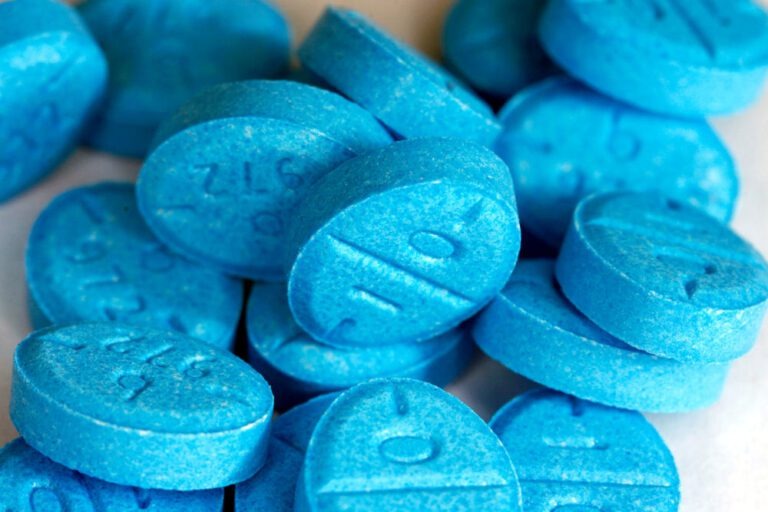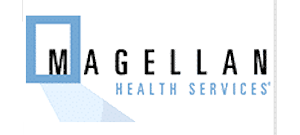As people struggled with the habit-forming consequences of opioid addiction, the United States Congress would then pass the Controlled Substance Act. This law placed drugs in categories based on their potential for misuse.
The Controlled Substance Act was an effort to put more restrictions on drug prescriptions. Congress, therefore, hoped this would stem the tide of opioid addiction and abuse.


The Rise of the Opioid Epidemic
Opioid Overdose Deaths:
The opioid epidemic in Illinois has led to thousands of deaths. In 2022, the Illinois Department of Public Health (IDPH) reported over 2,400 opioid-related overdose deaths. This represents a significant portion of the overall overdose deaths in the state.
While prescription opioids contribute to many of these deaths, fentanyl—a synthetic opioid that is much stronger than heroin—has been a leading cause. Fentanyl is often mixed with other drugs, contributing to its increasing role in overdose fatalities.
What are Opioids?
Prescription opioid drugs may produce pain relief and other desirable effects. They do this by blocking pain signals that are sent between the body and the brain. Individuals who suffer from chronic, mild, or severe pain may receive prescriptions for opioid pain medications.
Prescription painkillers are legal and, in many cases, safe to use. However, some individuals may find themselves suffering from painkiller misuse, dependence, or addiction.
Some people also use the illicit drug heroin. This illegal substance is highly addictive and is often a cause for individuals to seek the help of an addiction treatment facility. Both illicit opioids and prescription opioids can produce pleasurable effects for those who use them.
Individuals may experience relaxation or the feeling of being “high” when they use opioid drugs. As a result of this substance use, individuals may develop opioid use disorder. This may lead to the need for professional opioid treatment programs.

Opioids vs. Opiates: What’s the Difference?
Opioids can be natural, synthetic, or semi-synthetic. The term “opiates” refers to only natural opioid substances. In essence, all opiates are opioids, but not all opioids are opiates. Still, when it comes to getting treatment, it is important to know that an opioid treatment program can also help those who are in search of opiate addiction treatment programs.

Insurance Verification






Understanding Opiate Addiction
- Opium
- Morphine
- Codeine
- Heroin
However, given the ongoing opioid epidemic, many people have progressed into opiate addiction due to dependency on prescription pain medications. Doctors overly prescribed these opioids under pressure from unscrupulous pharmaceutical corporations. When prescriptions couldn’t be gotten by those who had inadvertently become dependent, many turned to illicit drugs that were cheaper and easier to acquire, such as heroin.
Signs and Symptoms of Opioid Abuse
- Itchy skin
- Impulsiveness
- Social withdrawal
- Using more opioids than prescribed
- Stealing prescription opioids from friends or family members
- Receiving prescription opioids from various doctors (“doctor shopping”)
- Engagement in risky and dangerous behaviors (i.e. driving while under the influence of opioids, etc.)
- Sudden behavioral changes (i.e. moodiness, irritability, uncharacteristic happiness, etc.)
- Difficulty staying awake and changes in sleep patterns
- Needle marks (due to intravenous substance abuse)
- Loss of interest in previously enjoyable activities
- Dishonesty about substance abuse problems
- Unexplained weight loss
- Constricted pupils
Individuals who suffer from substance use disorders often find themselves spending time with other people who are abusing drugs. They may spend less time with family members and friends as a result of these new relationships.


Opioid Withdrawal Symptoms
People who experience opioid withdrawal symptoms may encounter the following issues:
- Nausea
- Anxiety
- Vomiting
- Insomnia
- Muscle aches
- Excessive yawning
- Excessive sweating
- Stomach cramps
- Dilated pupils
- Goosebumps
- Runny nose
- Irritability
- Diarrhea
When individuals suffer from opioid withdrawal symptoms, the effects can be uncomfortable and even dangerous. As such, it is important to seek professional treatment in order to end opioid addiction in their lives. This will ensure that individuals have medical and professional assistance as they withdraw from substance use.
Why Opioid Rehab in Illinois is Necessary


Treatment Options for Opioid Dependence
- Telehealth services
- Inpatient treatment
- Outpatient treatment
- Partial hospitalization program (PHP)
- Intensive outpatient program (IOP)
- Medication-assisted treatment
- Structured sober living
- Aftercare
Opioid use disorder rehab typically begins with medically supervised detox or a medication-assisted treatment (MAT) program. Afterward, individuals will enter into an addiction treatment program that fits their unique needs.
When it comes to deciding whether outpatient rehab or inpatient rehab is the right choice, it is important to take into account the benefits of both treatment options. Treatment centers that offer inpatient rehab allow individuals to live at their rehab center for the duration of their rehab. Treatment centers that offer outpatient rehab services allow patients to receive treatment during the day while living at home or in a sober living environment.
Inpatient treatment can be beneficial for those who are dealing with a severe opioid addiction. Inpatient treatment may also be the best option for those who have experienced an opioid overdose. On the other hand, outpatient rehab may be the best option for those who have already finished residential treatment. Also, individuals who are dealing with a less-than-severe addiction may find that outpatient abuse treatment is the right choice for them.
How Much Does Opioid Treatment Centers?
Financing choices and payment may vary according to Facilities Policy. Although the cost for different treatment programs can vary, 7-day detox usually costs about $4000-7,000. Typically residential treatment ranges between $4000 and $58,000 depending on length and type of therapy, facilities offered and services offered.
General outpatient treatment ranges from $1,400 to $10,000 over a 30-day period. On average this would be $5,700 a month.

Opiate Addiction Treatment Services We Offer in Illinois
We understand the need for rehab centers that address the needs of the whole person. So, we take an interest in the mental and physical health of our patients. We work endlessly to make sure individuals achieve long-term recovery, not just a “quick fix” for addiction.
This mission is what drives us to offer a continuum of care for those who are searching for freedom from drug abuse. In addition to inpatient and outpatient addiction treatment approaches, we also offer intensive outpatient and partial hospitalization programs. These work to help individuals transition from residential programs to life outside of treatment.
Inpatient vs. Outpatient Opioid Rehabilitation Programs
Partial hospitalization programs (sometimes called PHPs, “Day Programs” ), intensive outpatient programs (IOPs), or a number of outpatient programs offer treatment during the day and evening.
It’s possible that patient visits vary from program to program however, the patient returns each day. 10-11 p.m. A partial hospitalization program was originally used by a mental health services administration but has expanded to treat substance abuse and mental disorders.
These addiction treatment centers tend to offer mental health counseling such as individual, family, and group therapy. Treatment locations may offer additional services such as holistic addiction treatment.


Therapy for Opioid Use Disorder Treatment
- Cognitive behavioral therapy (CBT)
- Dialectical behavior therapy (DBT)
- Holistic therapy
- Family therapy
- Group therapy
Whether a person engages in individual counseling or group counseling, the impact of behavioral therapy can be life-changing in the most positive ways. Therapy offers people the opportunity to discuss their challenges with addiction specialists and therapists who truly understand the challenges of dealing with addiction. Also, while in group therapy, people can talk about their struggles in victories with other recovering individuals.
Patients in our rehab programs will work alongside their counselors and therapists to determine which behavioral therapy approach will best meet their needs. Of course, as individuals progress, their therapy will be adjusted to meet their needs.
Dual Diagnosis Treatment for Opioid Rehab
Also, it’s very common for individuals who are abusing substances to be doing so because of an unknown underlying mental health disorder. This means that their substance abuse partially grows out of an attempt to self-medicate. Unfortunately, this approach doesn’t address the mental health issue and worsens the individual’s addiction.
Through dual diagnosis treatment, individuals receive treatment for both their dependency and mental health issues simultaneously. This allows them to heal more fully and it reduces the likelihood of future relapse. Some of the mental disorders that often co-occur with addiction include the following:
- Depression
- Bipolar disorder
- Anxiety disorders
- Post-traumatic stress disorder (PTSD)
- Attention-deficit hyperactivity disorder (ADHD)
At Northern Illinois Recovery Center, we know that many of our patients who are seeking opioid rehab may also need mental health services. It is common to see individuals suffer from substance abuse and mental health disorders simultaneously. Fortunately, our dual diagnosis treatment program addresses substance abuse and mental health challenges at the same time.

Receive Opioid Addiction Treatment at Northern Illinois Recovery Center
Northern Illinois Recovery Center is a treatment center that offers help for many types of substance use disorders, including opioid and opiate addiction. We have been helping clients heal long-term for over 20 years. For example, some of our treatments and programs include:
- Professional assessment
- Mental health services
- Extended care (90-day program)
- Dual diagnosis therapy
At our rehab center, clients receive individualized treatment that suits their needs. Our evidence-based treatment programs help clients get to the root of their problems, so healing is thorough and comprehensive.
We realize that the opioid rehab cost may be an area of concern for those who are looking for rehab. But, many treatment centers accept health insurance. This includes our facility here in Illinois. When you reach out to us, our team will help you determine what your insurance provider covers regarding addiction rehab.
Don’t let addiction control your life. Find hope and healing at an opioid addiction treatment center. You can overcome your opioid addiction with our help. Give us a call today and we’ll help you get started on the road to recovery.



